Qatar crisis: UAE threatens sympathisers with prison
- Published
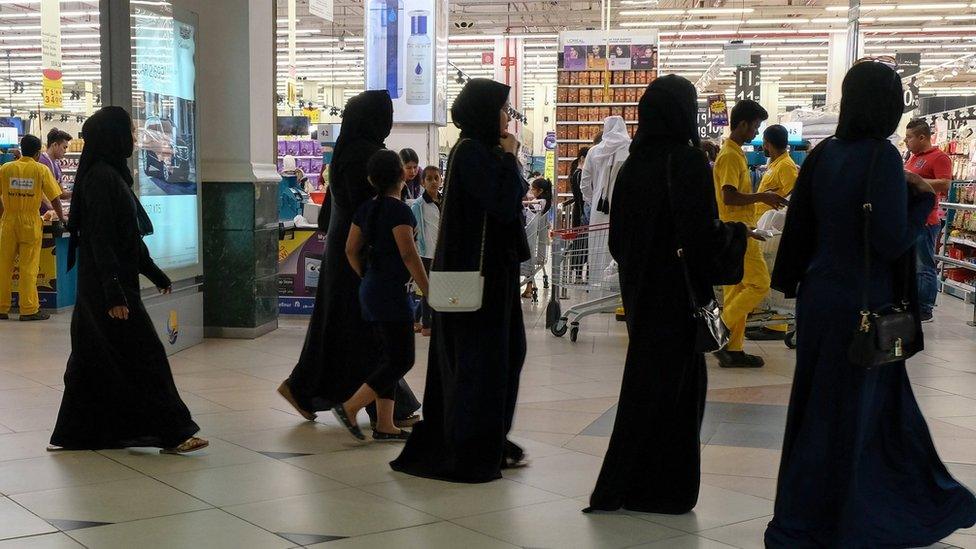
Food and water could be flown in from Turkey or Iran as supplies in Qatar run low
The United Arab Emirates has warned that anyone expressing sympathy for Qatar could face up to 15 years in prison, as a regional crisis escalates.
UAE officials said Qatar needed to end its support for terrorist groups, a claim the Gulf state strongly denies.
Several countries including the UAE, Saudi Arabia and Egypt cut travel and diplomatic links with Qatar on Monday.
Turkey, meanwhile, has approved a bill allowing more troops to be based in Qatar.
The economic disruption could have an impact on Qatar if the dispute drags on.
Reports say Iran and Turkey are also planning to airlift food and water into the country as supplies run low.
US President Donald Trump, whose tweets on the crisis have caused controversy, spoke to Qatar's Emir, Sheikh Tamim bin Hamad al-Thani, by phone on Wednesday and offered a possible White House meeting to help resolve the crisis, officials said.
Mr Trump stressed the importance of countries in the region working together, the White House said.
The emir of Kuwait is mediating in the dispute and the president of Turkey has also offered to help, but the UAE tightened the squeeze on Qatar on Wednesday.
"Strict and firm action will be taken against anyone who shows sympathy or any form of bias towards Qatar, or against anyone who objects to the position of the United Arab Emirates, whether it be through the means of social media, or any type of written, visual or verbal form," UAE Attorney General Hamad Saif al-Shamsi was quoted as saying by Gulf News.
Separately, UAE Foreign Minister Anwar Gargash denied that Gulf Arab states were seeking "regime change" and accused Qatar of being "the main champion of extremism and terrorism in the region".
"The government of Qatar is in denial," he told AFP news agency. "It is trying to describe this as an issue about the independence of their foreign policy, and it is not."

In an apparent act of support for Qatar, Turkish MPs approved a bill allowing more troops to be deployed to the country and to take part in joint training exercises. Turkey has had a base there, with about 150 troops, since 2014.
Qatar is heavily dependent on food imports and the crisis has led to stockpiling and shortages. Officials quoted by Reuters said talks were taking place with Iran, Turkey and others to secure supplies of food and water.
President Trump urged Gulf unity in a call to Saudi Arabia's King Salman, US officials said on Wednesday. He had earlier claimed credit for the pressure placed on Qatar saying his recent visit to Saudi Arabia was "already paying off".
In a series of tweets on Tuesday morning, Mr Trump accused Qatar of funding terrorism, saying: "During my recent trip to the Middle East I stated that there can no longer be funding of Radical Ideology. Leaders pointed to Qatar - look!"
But the Pentagon has also thanked Qatar for hosting the largest US airbase in the Middle East.
Qatar's foreign minister says there is no evidence of support for radical Islam
On Tuesday, Saudi Foreign Minister Adel al-Jubeir called on Qatar to cut ties with Palestinian Islamist group Hamas in the occupied territories, and the Muslim Brotherhood in Egypt, if it wanted to end its isolation.
"Nobody wants to hurt Qatar. It has to choose whether it must move in one direction or another direction," he said.
But Qatari Foreign Minister Sheikh Mohammed Bin Abdul Rahman al-Than said there was "no evidence that the Qatar government is supporting radical Islamists".
- Published7 June 2017
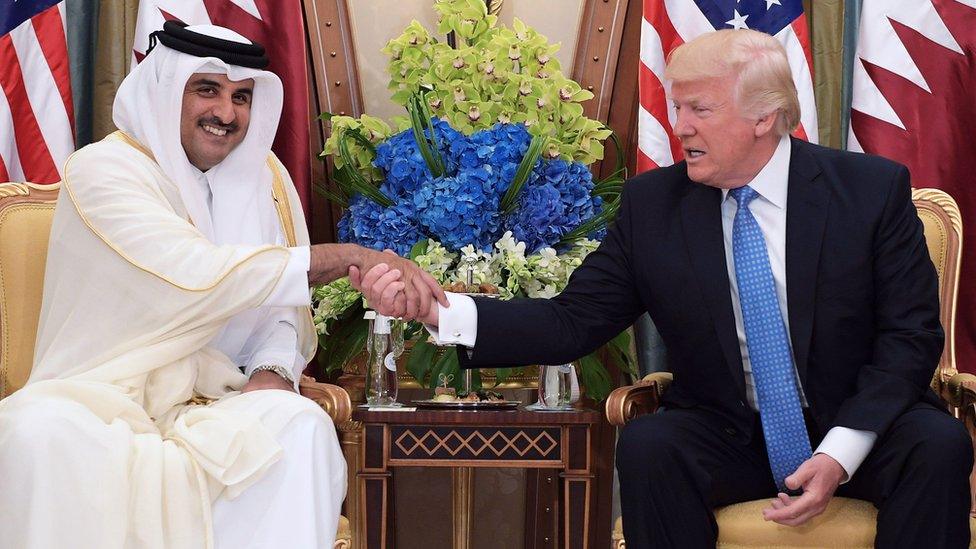
- Published6 June 2017
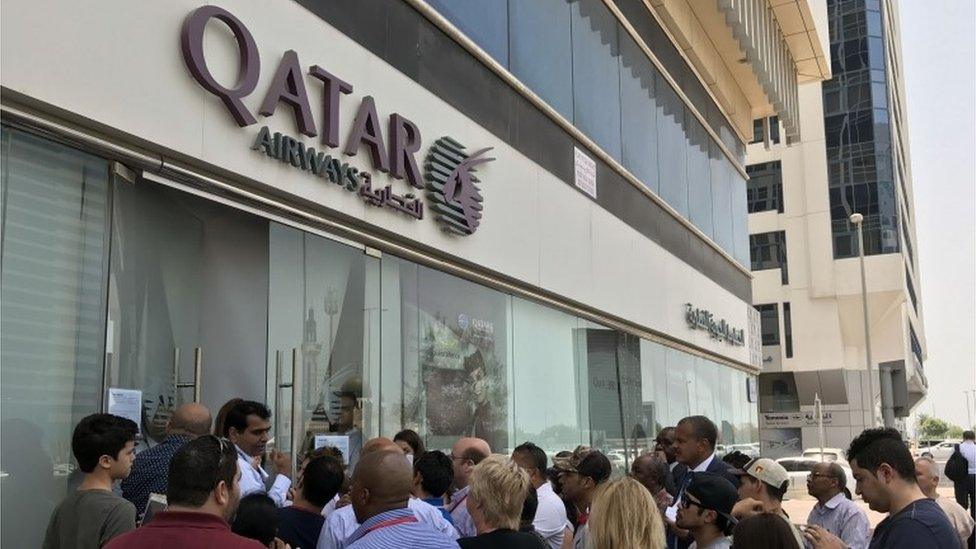
- Published6 June 2017
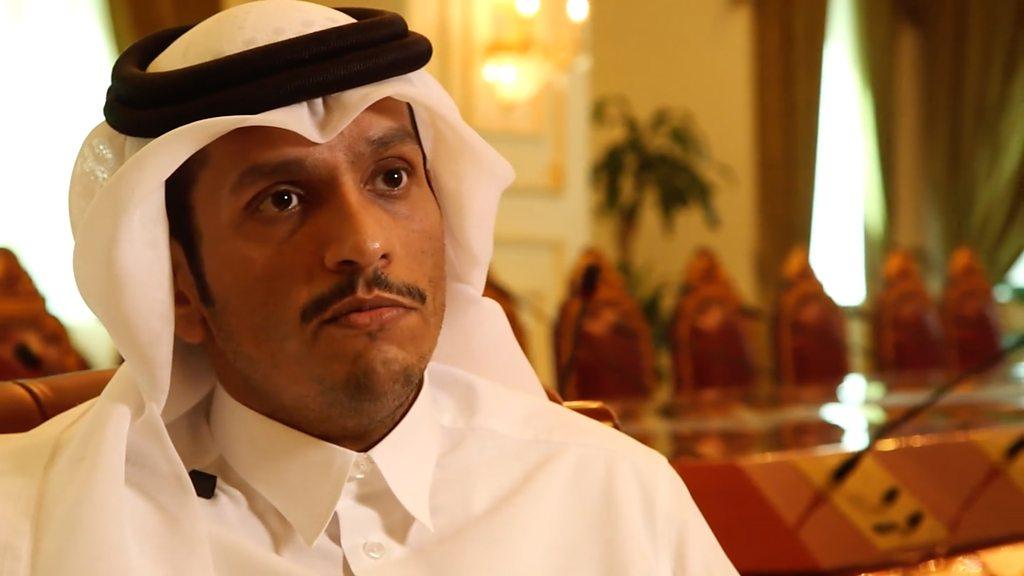
- Published19 July 2017
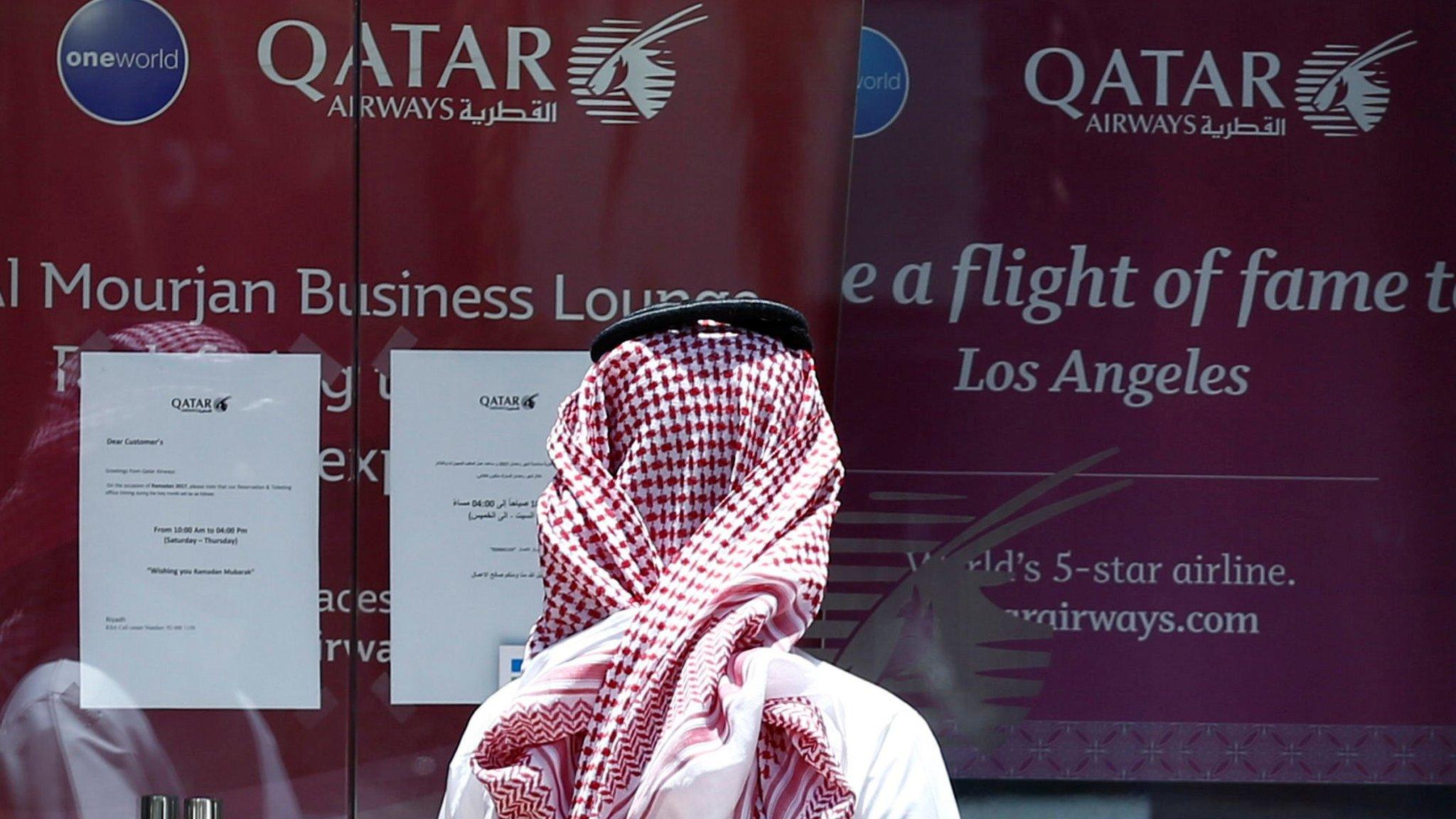
- Published6 June 2017
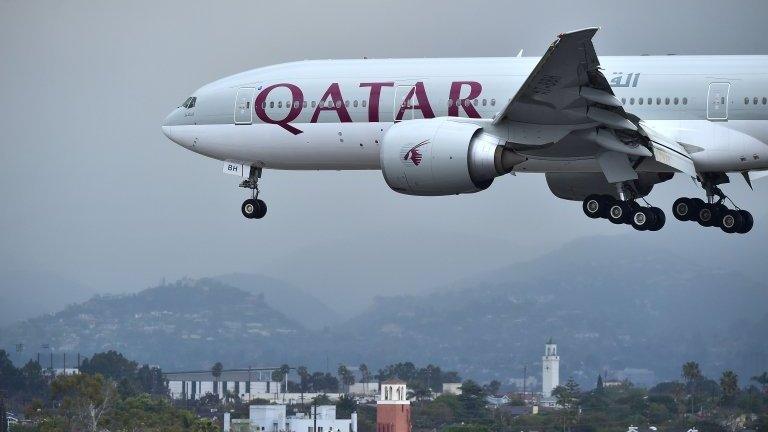
- Published5 June 2017
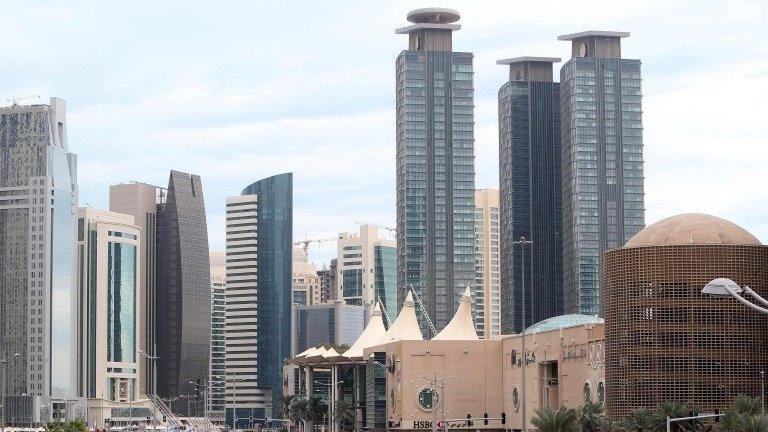
- Published6 June 2017
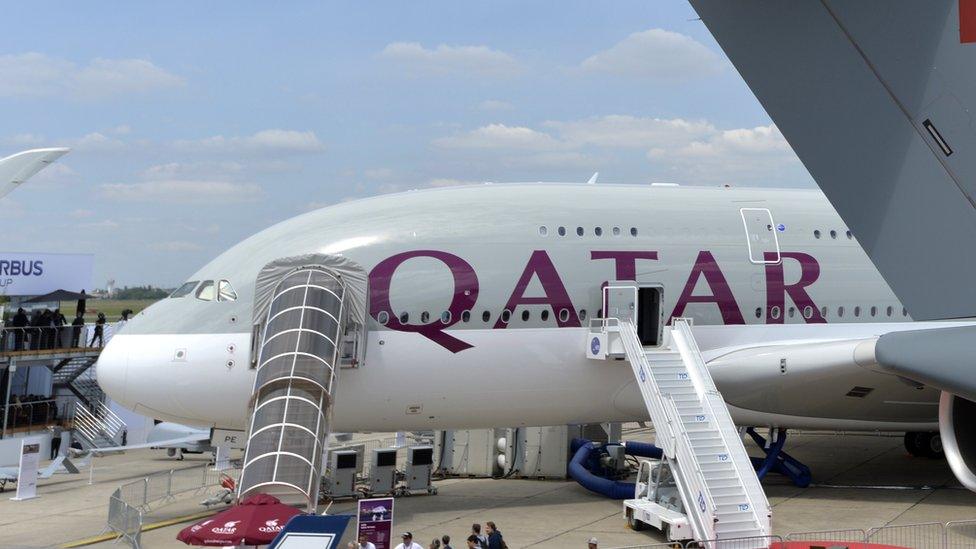
- Published5 June 2017
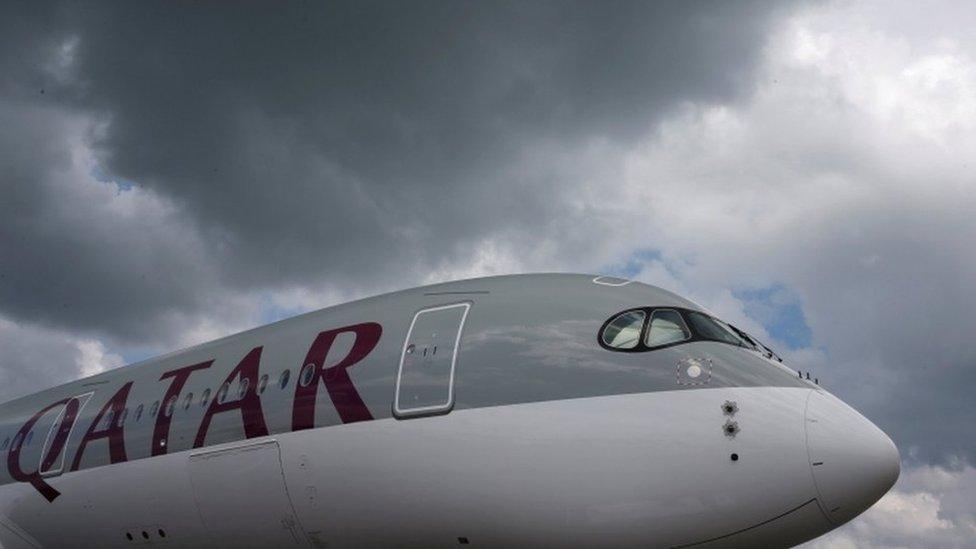
- Published5 June 2017
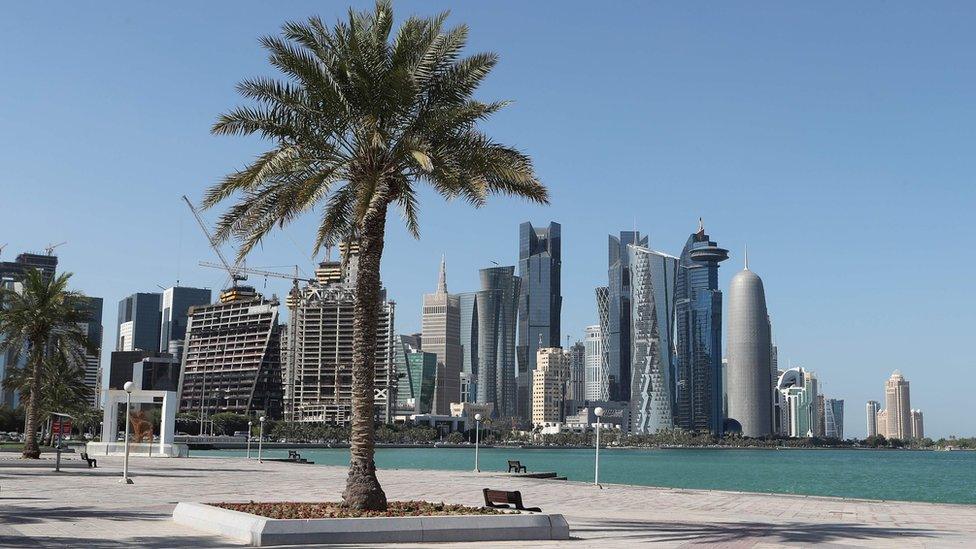
- Published5 June 2017

- Published5 June 2017

- Published25 May 2017
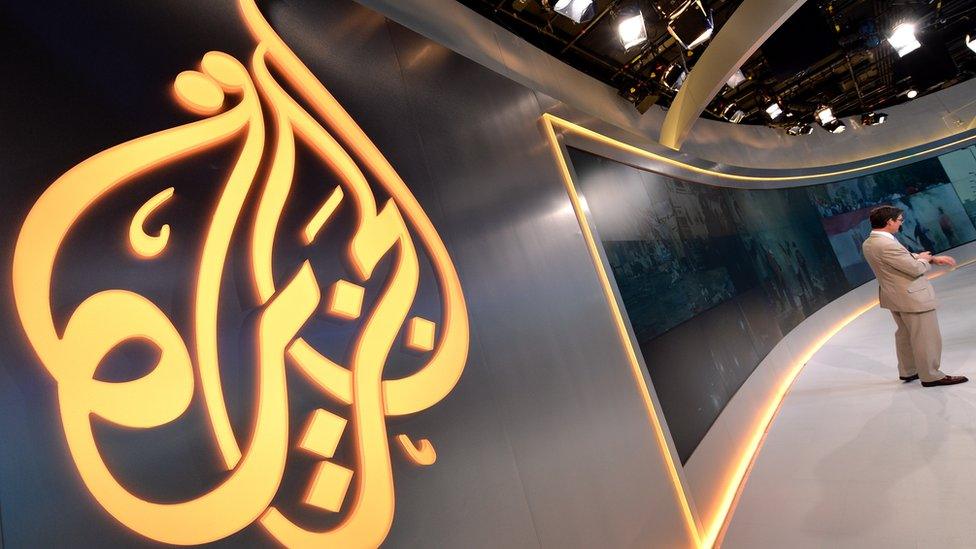
- Published7 September 2023
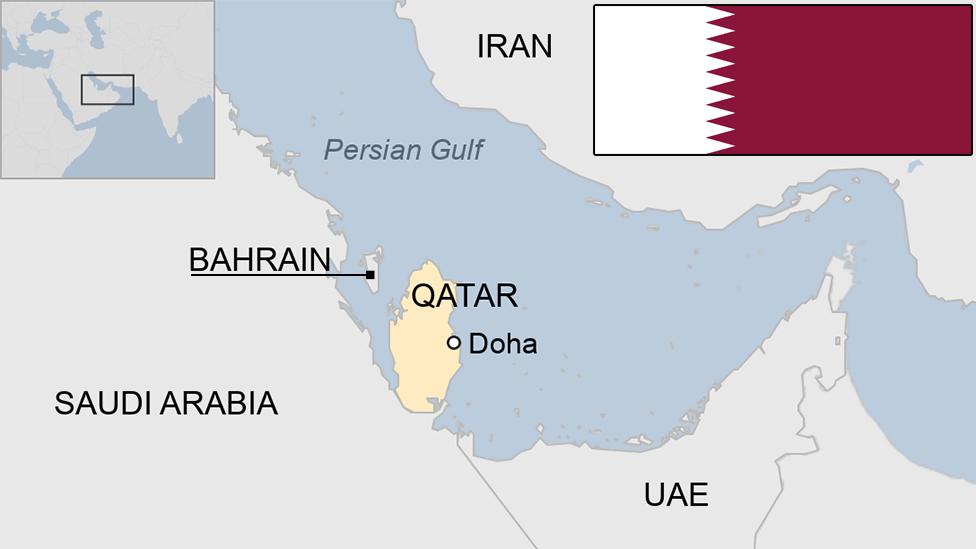
- Published3 December 2015
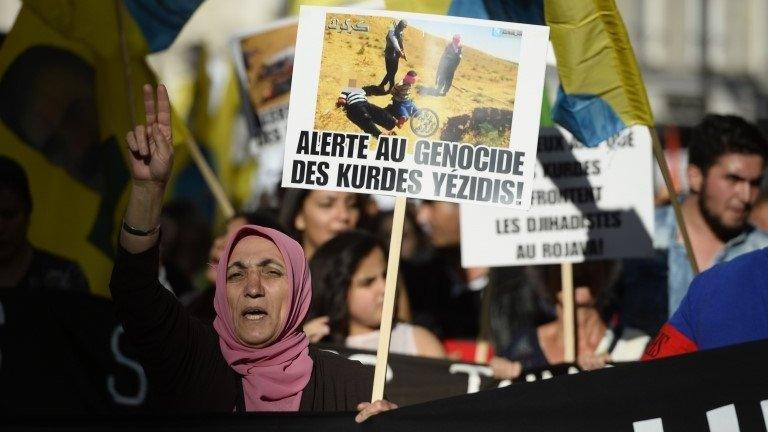
- Published5 June 2017
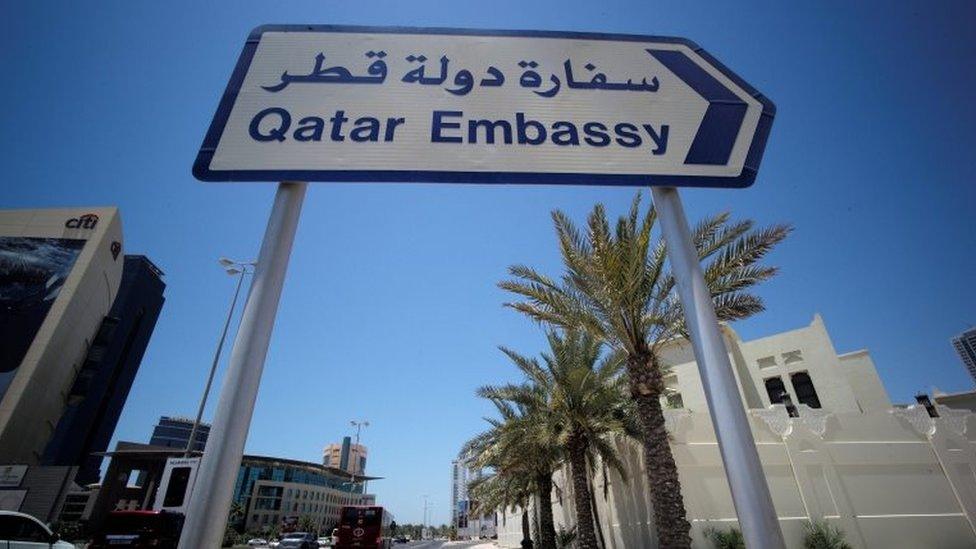
- Published13 April 2015
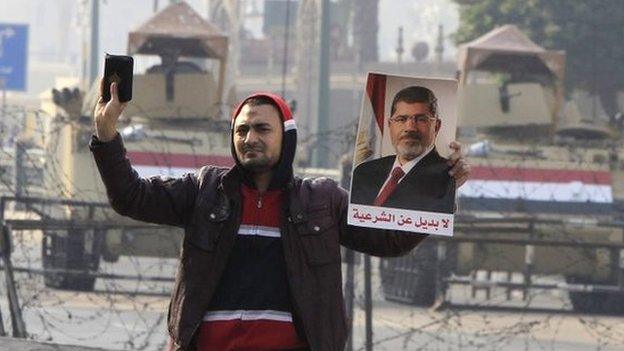
- Published1 July 2021
